- Home
- Mario Puzo
The Making of the Godfather Page 3
The Making of the Godfather Read online
Page 3
That made me happy. Love my work, I love you. But I still knew he was wrong. I spent the next three days playing tennis. Hell, I spent the next two weeks playing tennis. Then I decided to go home for a couple of weeks. I missed my wife and kids. And this was April and spring is a good time to be in New York.
Ruddy took the decision like a gentleman. He even kept paying me the $500-a-week expense money while I was living at home. I stayed home for a couple of weeks and did some work and then flew back to California-with a stop at Las Vegas, where I lost what I had saved of my expense money.
So from April to August I led an ideal existence: California, tennis and sunshine–until I got homesick, then home again. Then when home life got on my nerves–back to California. Nobody knew where I was or when. Meanwhile I was being charmed out of my shoes by all the people I met in California. Socially, I had round heels, there was no other word for it. I wasn’t getting much work done, but nobody seemed to be worrying.
Now the fact that I was a hermit escaped from his hut after twenty years doesn’t mean I was a complete innocent. But the fact is that the people in the movie world are genuinely charming even if their charm is sometimes not disinterested. One of the greatest surprises for me was to find actresses and actors so sympathetic. Writers and directors and producers always put performers down. Star actors are considered dunderheads. Actresses are always to be manipulated by power, in their personal and professional life. They are supposed not to have intelligence or sensitivity.
I quite simply found the reverse to be often true. I found many of them intelligent, quiet, sensitive and shy. I observed that at the beginnings of their careers and afterward they are badly exploited by their producers, studios and agents and assorted hustlers. They suffer the most profound humiliations just to get a chance to use their art. After seeing what they go through at the beginning of their careers and considering the long years of waiting, it is easy to excuse their excesses when they become famous and powerful.
From April to August of 1970 I cummuted back and forth from New York to Los Angeles, working on the script, playing tennis, getting a taste of the social life in Hollywood. All very pleasant. The time before a writer delivers the script is sort of a honeymoon time. Love is everywhere.
I used to enjoy watching the pretty girls making the rounds of the producers’ offices to read for parts. Every studio has a gang of producers who rent offices on the lot while getting a picture ready for production. Nine hundred and ninety-nine out of a thousand of these pictures never get made, but mean-while the producers have people coming in to read and rehearse parts, study scripts, and have long earnest discussions on how to play the parts. Outside the studios there are another 10,000 hopefuls who have written scripts and carry three containers of film to shoot their own independent movie. They, too, are interviewing and rehearsing the 1,000,000 pretties, young women and men in America who have flocked to LA to get in films. All this, combined with the great weather and sunshine, gave Hollywood an ambience that was to me at least interesting.
Sometimes I’d see a movie in a private screening room. No fun. People took phone calls and messages while watching. Made jokes, talked. When I go to a movie I’m a true believer. Or I just walk out.
In the evenings I’d drop down to Al Ruddy’s office and have a drink with him and his production staff. Al was an easy guy to be with, a great storyteller, and his people were agreeable. It was one of the nicest parts of the day. Ruddy was also in the middle of cutting his picture Little Fauss and Big Halsey starring Robert Redford and Michael Pollard, and he was always telling us what a great movie it was going to be and how many Oscars it was sure to win. Other people who had seen the rough cut agreed. I was anxious to see it and Ruddy said he would show me a piece of it first chance.
He did the next day, a ten-minute segment, and I loved it. My New York friend George Mandel, who was on assignment from Life magazine to do a piece on me, disagreed. He gave his reasons, and because I think he’s the smartest guy in the world, I listened. But I still liked the segment. One of the hardest things for a person to do is really to listen to the smartest guy in the world.
When Little Fauss and Big Halsey came out, it was a flop. Everything George Mandel had said about the ten-minute segment proved to be true about the rest of the picture. I could see it when I saw the whole thing, but it took the smartest man in the world to figure it out from just seeing a ten-minute segment.
By this time I was anxious to give Paramount a great script and make a great movie. I was becoming possessive, it was becoming my movie after all. Of course I knew my place in the batting order (eighth), but I was so psyched up, I said the first draft was just rough and didn’t count, which was equivalent to giving them a free rewrite worth about twenty-five grand. I wanted them to love me and to show I was really rooting for our side. I didn’t know that as soon as I said the first draft was free nobody would read it.
Then two things happened that made me stop embarrassing them with such sentimentality.
One evening I dropped into Ruddy’s office as he was on the phone. While talking, he rewrote a script he was about to produce for another studio. I watched, fascinated. He was actually writing while talking on the phone. I’ve always admired people who could do two things at one time. This was special. His closing words on the phone were “I think I got this script licked now.”
Now this story is not meant to enrage writers. Nor is it meant to put down producers. But it restored my perspective. I went back to playing tennis for the next five days and let the script lay. It was not My movie.
I guess I should explain why I found this incident not annoying or threatening to me as a writer. You often read how a star rewrites his or her lines, how a director “fixes up” a script or a producer gives it a final polish. And yet if you really understand how it works, it’s impossible to get angry. For example:
During World War II I was attached to the British Army, and at one point we met elements of the Russian Army in a northern German town. It seems this Russian division, recruited from some wild Asiatic province, had never seen plumbing. They were fascinated by water running out of a copper faucet. One fur-hatted Russian ripped the faucet off the wall and nailed it on a fence post. He was astonished when he turned on the faucet and no water came out. He assumed that water just came out of the faucet. The concept of plumbing had never been revealed to him. You can laugh at it, but it wasn’t native stupidity, it was simply innocence.
When a director, or a star, or a producer picks up a pen, I think the same thing happens. (There are exceptions of course.) They believe words come out of a pen. And again it’s not stupidity. Simply innocence. They have no concept of how writing really works. So writers shouldn’t get mad. They should just get the hell out of the movie business.
The second thing that threw me off involved Peter Bart. I had rented a house at Malibu for one of the summer months and brought my family out from New York. I was now seriously at work after goofing off for some four months. I had a secretary typing and I was zeroed in on the script–really in the groove. But I was past my deadline for the first draft. (If I hadn’t given them a free first draft to show that I loved them, everything would have been OK.) But Bart knew I had been goofing off and started putting pressure on. I said OK, the end of the week. Naturally I wasn’t ready at the end of the week. He insisted. There was still a final section that I wanted to rewrite and give it that extra polish and editing a solid piece of work needs. And then it wasn’t finally so much that Bart or anybody else got tough; they were always courteous, always kind; it was just that all of a sudden I said to myself, “What the hell do I care? It’s not MY movie.”
So I told my secretary to just type out what I had already written. I didn’t go over the last section. I then put on my bathing suit, and for the first time since I had moved into the house on the beautiful beach of Malibu, I took a dip in the ocean. I would enjoy a beautiful, luxurious swim.
Now this was very wro
ng of me. Instead of getting my feelings hurt, I should have just let them wait. Guilty conscience. I should have been more adult. It was also very wrong of me because I hate going into the ocean.
They had the script and everybody liked it. Of course, by contract, I had to do a revision. Now they had to get a director. This was in August, 1970. Meanwhile in the following months while they looked for a director, I had a few adventures. The most interesting was with Frank Sinatra, rated as one of the ten most famous people in the world, a guy who had been my idol from afar. Despite this I had never wanted to meet him or be introduced. I just believed he was a great artist (singing, not acting) and that he had lived a life of great courage. I admired his sense of family responsibility, especially since he was a Northern Italian, which to a Southern Italian is as alien as being an Englishman.
In The Godfather the singer named Johnny Fontane has been assumed by many people to be based on Frank Sinatra. Before the book came out, my publisher got a letter from Sinatra’s lawyers demanding to see the manuscript. In polite language we refused. However, the movie was another story. In the initial conferences with Paramount’s legal staff they showed concern about this until I reassured them the part was very minor in the film. Which it turned out to be.
Now the thing was, in my book, that I had written the Fontane character with complete sympathy for the man and his life-style and his hang-ups. I thought I had caught the innocence of great show biz people, their despair at the corruption their kind of life forces on them and the people around them. I thought I had caught the inner innocence of the character. But I could also see that if Sinatra thought the character was himself, he might not like it–the book–or me.
But of course some people wanted to bring us together. At Elaine’s in New York one night Sinatra was at the bar and I was at a table. Elaine asked if I would object to meeting Sinatra. I said it was OK with me if it was OK with him. It was not OK with Sinatra. And that was perfectly OK with me. I didn’t give it another thought.
A year later I was working on the script in Hollywood. I rarely went out in the evening but this particular night I was invited to my producer’s friend’s birthday party at Chasen’s. A party for twelve given by a famous millionaire. Just an agreeable dinner. Everybody had been so charming to me the past six months I had gotten over some of my backwardness. So I went.
The millionaire turned out to be one of those elderly men always trying to be youthful. He wore red slacks and a miniature Stetson and had that five-martini affability I dread more than anything else in the world. As we were having a drink at the bar, he said Sinatra was having dinner at another table and would I like to meet him. I said no. The millionaire had a Right-Hand Man who tried to insist. I said no again. We finally went to dinner.
During the dinner there was a tableau of John Wayne and Frank Sinatra meeting in the space equidistant between their two tables to salute each other. They both looked absolutely great, better than on the screen, twenty years younger than they really were. And both beautifully dressed, Sinatra especially. It was really great to see. They were beribboned kings meeting on the Field of the Cloth of Gold; Chasen’s is regally formal.
The food brought me back to reality. It was lousy. Christ, I’d eaten better in one-arm Italian joints all over New York. This was the famous Chasen’s? Well, OK, the fancy French restaurants in New York had been a disappointment too. I was glad when we were finished and I started to leave.
But on the way out the millionaire took me by the hand and started leading me toward a table. His Right-Hand Man took me by the other hand. “You gotta meet Frank,” the millionaire said. “He’s a good friend of mine.”
We were almost to the table. I still could have wrenched loose and walked away, but it would have been an obvious snub. It was easier, physically and psychologically, to be led the few remaining steps. The millionaire made the introduction. Sinatra never looked up from his plate.
“I’d like you to meet my good friend, Mario Puzo,” said the millionaire.
“I don’t think so,” Sinatra said.
Which sent me on my way. But the poor millionaire didn’t get the message. He started over again.
“I don’t want to meet him,” Sinatra said.
Meanwhile I was trying to get past the Right-Hand Man and get the hell out of there. So I heard the millionaire stutering his apologies, not to me, but to Sinatra. The millionaire was actually in tears. “Frank, I’m sorry, God, Frank, I didn’t know, Frank, I’m sorry–”
But Sinatra cut him short and his voice was now the voice I had heard while making love as a kid, soft and velvety. He was consoling the shattered millionaire. “It’s not your fault,” Sinatra said.
I always run away from an argument and I have rarely in my life been disgusted by anything human beings do, but after that I said to Sinatra, “Listen, it wasn’t my idea.”
And then the most astounding thing happened. He completely misunderstood. He thought I was apologizing for the character of Johnny Fontane in my book.
He said, and his voice was almost kind, “Who told you to put that in the book, your publisher?”
I was completely dumbfounded. I don’t let publishers put commas in my books. That’s the only thing I have character about. Finally I said, “I mean about being introduced to you.”
Time has mercifully dimmed the humiliation of what followed. Sinatra started to shout abuse. I remember that, contrary to his reputation, he did not use foul language at all. The worst thing he called me was a pimp, which rather flattered me since I’ve never been able to get girlfriends to squeeze blackheads out of my back much less hustle for me. I do remember his saying that if it wasn’t that I was so much older than he, he would beat hell out of me. I was a kid when he was singing at the Paramount, but OK, he looked twenty years younger. But what hurt was that here he was, a Northern Italian, threatening me, a Southern Italian, with physical violence. This was roughly equivalent to Einstein pulling a knife on Al Capone. It just wasn’t done. Northern Italians never mess with Southern Italians except to get them put in jail or deported to some desert island.
Sinatra kept up his abuse and I kept staring at him. He kept staring down at his plate. Yelling. He never looked up. Finally I walked away and out of the restaurant. My humiliation must have showed on my face because he yelled after me, “Choke. Go ahead and choke.” The voice frenzied, high-pitched.
Different versions of this incident appeared in papers and on TV depending on who was doing the planting. It was at this time I realized how important a public relations apparatus is. Sinatra has a guy named Jim Mahoney and he must be good because every story version made Sinatra a hero. Which made me think. Was Everything I had admired about Sinatra a creation of Mahoney?
It must be pointed out that this incident was not Sinatra’s fault. He was eating dinner, minding his own business. The fault is partly mine. I could have pulled away and I wonder to this day why I did not. But the humiliation did me a lot of good. I was really beginning to think I was important. Also now I have an accepted excuse for not going to parties. Before that it was always hard to explain why. Now all I have to do is tell the Sinatra story and I’m excused. Everybody understands.
Incidents like this send the writer scurrying back to his workroom for safety. Make no mistake, writers become writers to avoid the pains and humiliations of the real world and real people. I started rewriting the script, playing tennis and reading quietly at night in my suite. If I was going to be a hermit, the Beverly Hills Hotel was a great hut.
I felt depressed too, because I thought Sinatra hated the book and believed that I had attacked him personally in the character of Johnny Fontane. But a few weeks later when Francis Coppola was named as director of the film, he too had an incident with Sinatra. They ran into each other in an LA club one night, and Sinatra put his arms around Coppola’s shoulders and said, “Francis, I’d play the Godfather for you. I wouldn’t do it for those guys at Paramount, but I’d do it for you.”
<
br /> That story cured my depression but Sinatra was still a presence in the making of the film. Some well-known singers turned down the part, one of them remarking he wouldn’t touch it with a ten-foot pole. Al Martino wanted the part, but for some reason it was first offered to Vic Damone. Damone accepted and then turned it down. Presumably out of loyalty to Sinatra and the Italian American League. But later Vic Damone admitted this was an excuse invented by the great Mahoney. He really turned it down because it was a small paycheck. Finally Al Martino got the part and, I thought, did it exactly right.
Another Sinatra-Coppola story was supposedly Sinatra calling up Coppola on the phone and Coppola just listening and then Coppola saying thoughtfully, “I never did like that line about him calling her a tramp.” This referred to a line in the book where Johnny Fontane cursed his second wife out. It was never in any version of the scripts even before the call.
Some very famous directors turned The Godfather down because it offended their social consciences, because “it glorified the Mafia and criminals.” When Costas Gravas, the director of Z, was approached, he said he would love to do it because it was an indictment of American capitalism. But he declined because it was too American and he felt that he, as a foreigner, couldn’t handle the nuances.
Fair enough. I liked Costas Gravas’ reaction. And I understood the others too. My first novel was called degenerate and dirty by a few critics, though others praised it as art. By now the only opinion about my work I worried about was my own. And I was a tougher critic than most, so my feelings were rarely hurt. What I didn’t know was that there was some argument about making the movie as a cheapie and cashing in on the book’s sales record.
Finally they decided to go all the way. Bart had written a critique of my first draft screenplay that made a lot of sense, and also made up for his lack of California charm. In fact I found that I could most of the time get straight answers when I asked him questions. Which is not as comforting as charm of course but more useful. It was Bart who came up with the idea of using Francis Coppola as the director. Mainly because he was Italian and young. Stanley Jaffee, the president of Paramount Pictures, Bob Evans and Ruddy agreed. Again my cynical mind makes me wonder if they picked Coppola because he was a kid in his early thirties and had just directed two financial failures, and so could be controlled. At the time they were hoping to do The Godfather for between $1,000,000 and $2,000,000. (The picture finally cost over $6,000,000.)

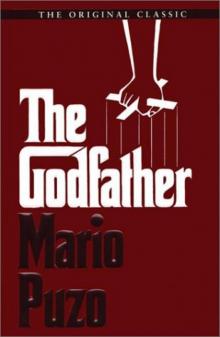 The Godfather
The Godfather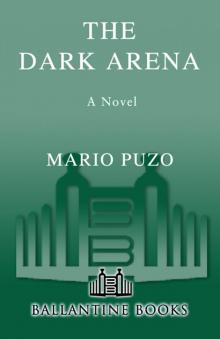 The Dark Arena
The Dark Arena The Family
The Family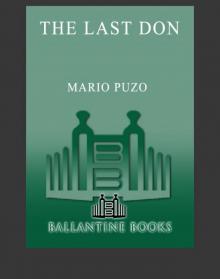 Last Don
Last Don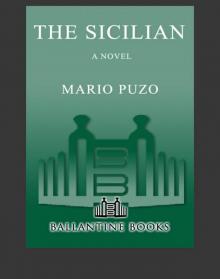 The Sicilian
The Sicilian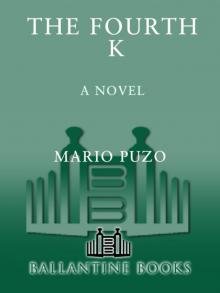 The Fourth K
The Fourth K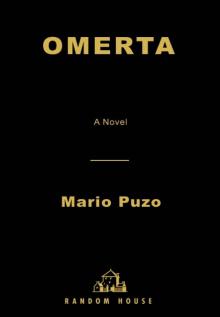 Omerta
Omerta Six Graves to Munich
Six Graves to Munich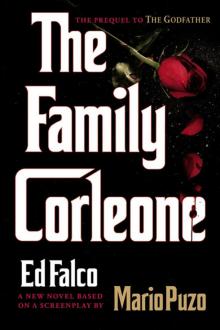 The Family Corleone
The Family Corleone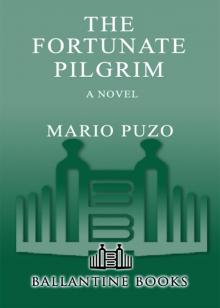 The Fortunate Pilgrim
The Fortunate Pilgrim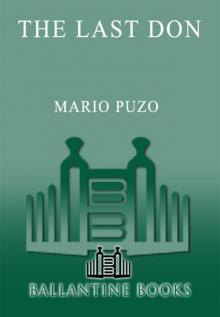 The Last Don
The Last Don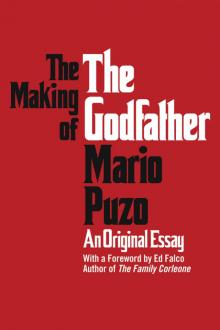 The Making of the Godfather
The Making of the Godfather Fools die
Fools die The Sicilian (v2.0)
The Sicilian (v2.0)